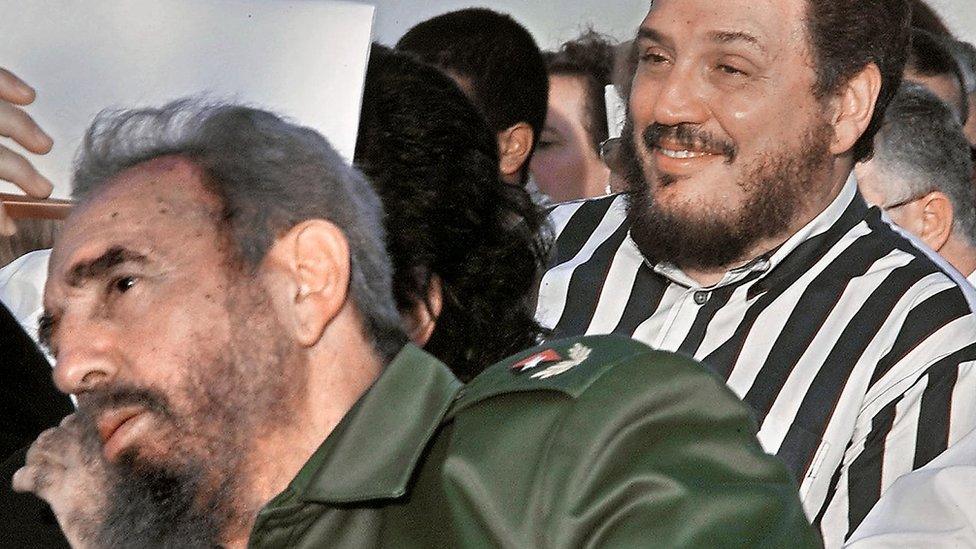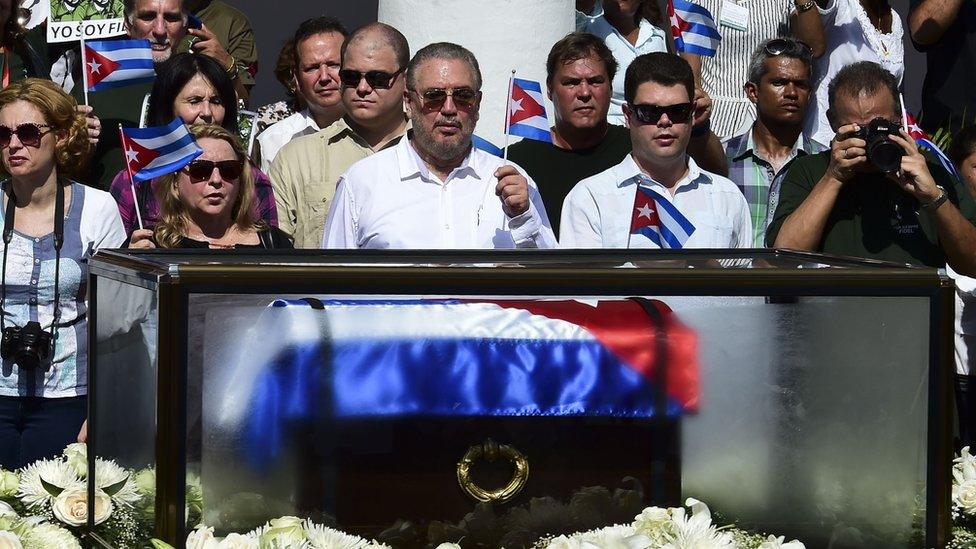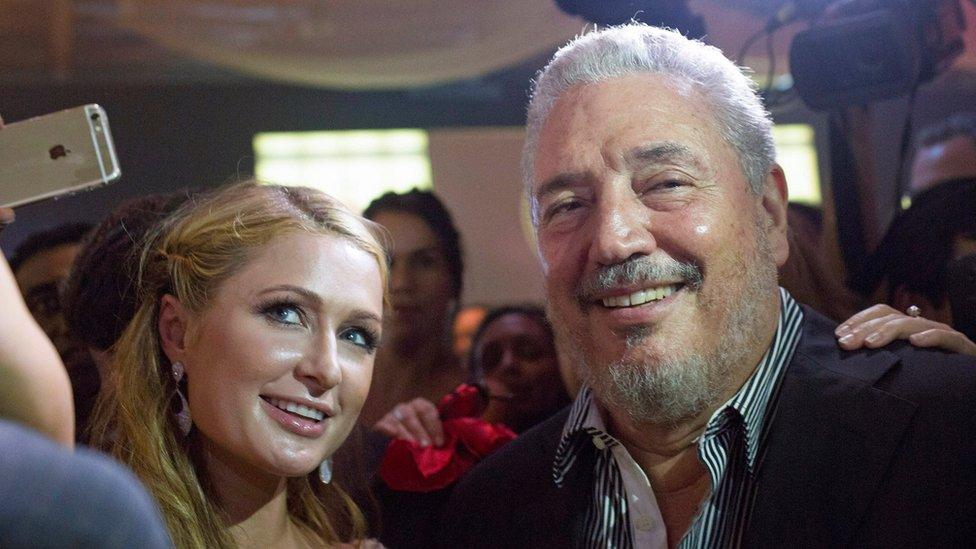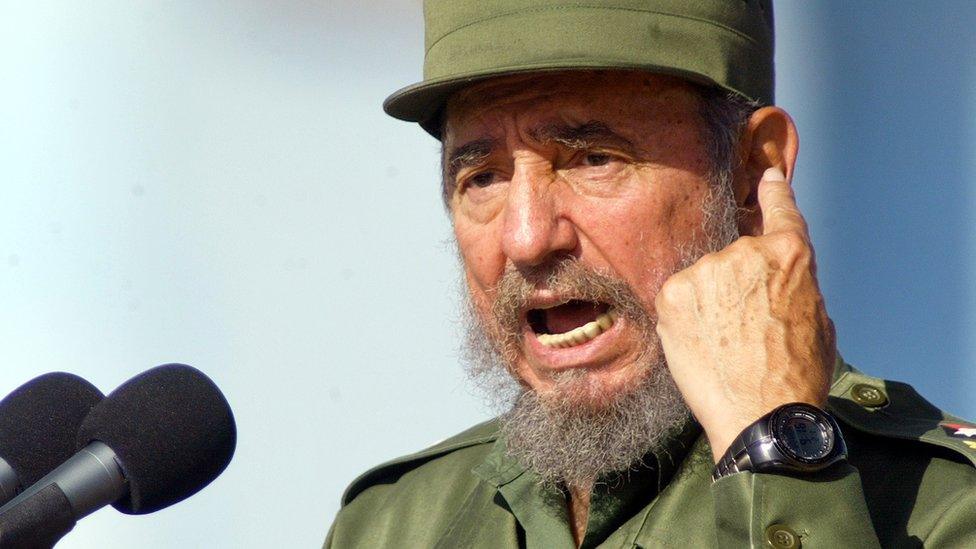Cuba: Fidel Castro's son 'takes own life'
- Published

"Fidelito" (right) lived in his famous father's shadow
The 68-year-old son of Cuba's former leader Fidel Castro has killed himself in Havana, according to Cuban state media.
Fidel Ángel Castro Díaz-Balart was found on Thursday morning and is said to have suffered from depression.
The first-born son of the late president was nicknamed "Fidelito", or Little Fidel, after his father.
He was a nuclear physicist, trained by the former Soviet Union.
"Fidel Castro Díaz-Balart, who had been treated by a group of doctors for several months due to deep depression, took his life this morning,", external Cuba's official newspaper Granma reported - little more than a year after the death of his father.
State television said he had been receiving medical treatment as an outpatient in recent months, following a hospital stay.

Depression in the spotlight - Will Grant, BBC News, Havana

Fidelito's work for the Cuban regime came to an end with the collapse of the Soviet Union
Fidel Ángel Castro Díaz-Balart had taken his own life after suffering with deep depression which doctors had been treating him for over several months, state TV said.
As much as the death itself may shock ordinary Cubans, it was those unexpected circumstances which caught them by surprise.
As the personal lives of members of the Castro family are generally kept away from the public eye, almost no-one will have known he suffered mental health issues prior to the announcement of his death.

At the time of his death, he was a scientific adviser for the Cuban Council of State and he served as vice president of Cuba's Academy of Sciences.
He headed the island's nuclear programme from 1980 to 1992, before it was suspended after the Soviet Union's collapse.
He was married to María Victoria Barreiro and had three children from his previous marriage - Fidel Antonio Castro Smirnov, Mirta María Castro Smirnova and José Raúl Castro Smirnov.

Fidel Ángel Castro Díaz-Balart (centre) attends a ceremony with his father's ashes in an urn in December 2016, days after the elder Fidel's funeral

Fidel Ángel Castro Díaz-Balart poses with socialite Paris Hilton during the Habanos Festival in Havana in 2015
Fidel Castro Díaz-Balart was born in 1949, during his father's brief first marriage to Mirta Díaz-Balart, the daughter of a prominent pre-revolution politician.
His father went on to overthrow the US-backed dictator, Fulgencio Batista, in 1959 - when his mother's family fled the island and went to Florida.
His parents divorced and "Fidelito" spent some of his early years in the US before his father managed to bring him back to Cuba.
This history explains why some of his close maternal relatives are among the most committed critics of the Cuban government - such as his cousin, Mario Díaz-Balart, a US congressman.
Fidelito himself was loyal to the ideals of the Cuban revolution, but was said in recent years to have grown weary - both of living in his father's shadow and having been sidelined from Cuban decision-making on energy resources, said reports.
His ideas for developing renewable energy on the island were not incorporated into state policy, an academic colleague, Jonathan Benjamin-Alvarado, told Reuters.
"I imagine that was disappointing for him," Mr Benjamin-Alvarado said.
The TV announcement said his funeral would be planned by his family, but no further details were given.
His father, Fidel Castro, a revolutionary figure and one of the world's longest serving political leaders, died aged 90 in 2016.
- Published26 November 2016
